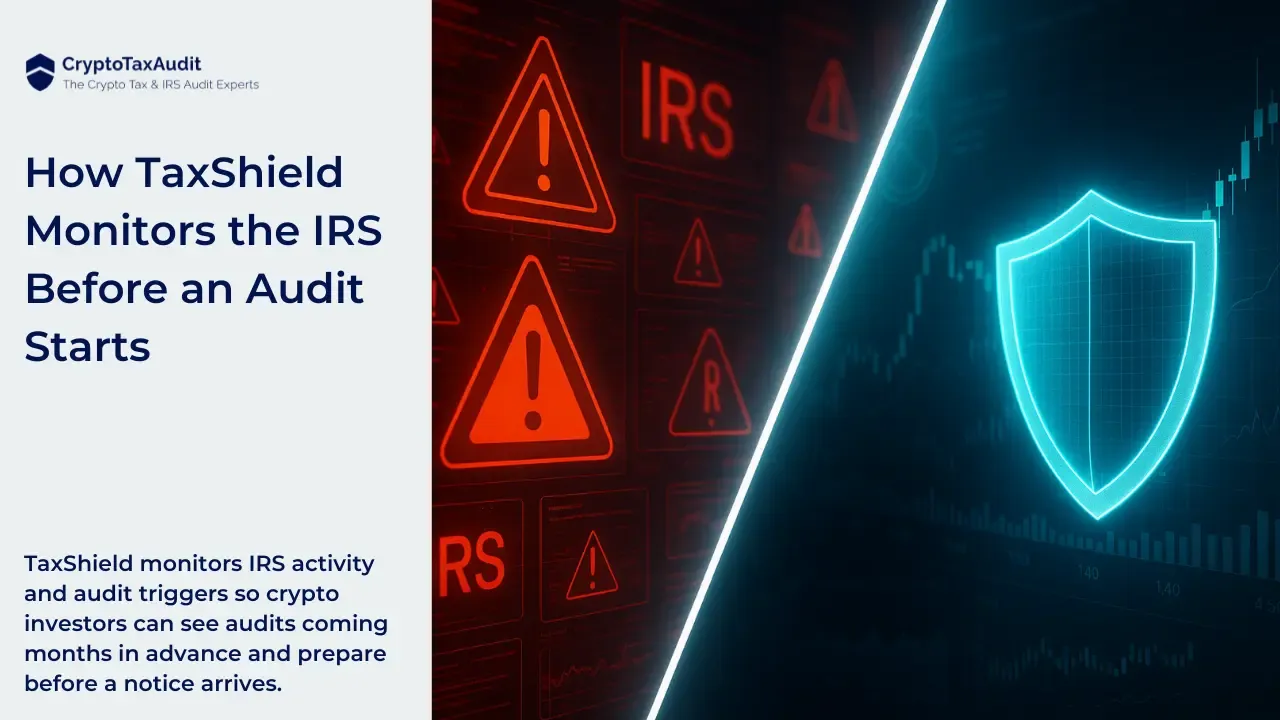
Clinton Donnelly, a crypto tax expert, answers the top questions about crypto taxes in the United States.
How is crypto taxed in the United States?
The IRS classifies cryptocurrencies as property, and property is taxed when you sell it.
If I buy a piece of art and the art price goes up and sell it, I will profit which is known as a gain. The gain over what you bought it at is taxed, not the price you sold it at.
The unique thing about cryptocurrencies is that if you trade one currency for another currency, this gives rise to one of the most asked questions. “Why am I taxed when I trade one coin for another coin?”
How are crypto taxes calculated?
I am quoting precisely what the tax law says here. It says that "a taxpayer realizes a gain or a loss anytime they sell or exchange property (cryptocurrencies are property); the gain can be realized in cash that you receive and in the fair market value of any property received."
Is crypto-to-crypto trading taxable?
Most people realize the crypto-to-fiat (cash) trades are taxable, but about about crypto-to-crypto trades? When making crypto-to-crypto trades, there's no cash, but we’re receiving a new currency at a fair market value. That is considered the measure of how much the gain is.
With cryptocurrency, as with all property, we have what is called a gain (or a loss). In the U.S., we look at that gain, and we decide, how long have we held this gain? If you hold an asset for more than a year, you get to benefit from long-term capital gains treatment, which for most people is around a 15% tax rate on the net gain.
The net gain is all your winners minus all your losers. At the end of the year, hopefully, you'll have more winners than losers. If you haven't held for a year, that's considered a short-term gain.
Is crypto taxed as income or as capital gains?
Short-term gains are taxed like ordinary income (ordinary income would be interest, dividends, and wages). These are all taxed at your marginal tax bracket, which increases as you make more money. Those are ordinary gains.
The most significant way to reduce your taxes is to hold onto a coin for a year before you sell it.
Once you have held it for a year or more, you can then sell it at any point in that time and you're going to get the long-term gains rate.
How should crypto assets be treated? Should crypto assets be treated in the same manner that currencies vs. equities are treated from a capital gains perspective?
What about Forms 1040, 1099-K, and 1099-MISC?
The IRS says that we have what they call a “voluntary” tax system as Americans. The IRS depends on people to report how much they've made honestly. To increase their level of “honesty”, the IRS has mandated that people who pay others file forms at the end of the year, reporting these payouts to the IRS.
For an employee, a company must pay their wages and withhold taxes. That withholding is reported on the W2 form. Other types of payouts may get a 1099 form. There are about a dozen versions of them, such as 1099-K and 1099-MISC, and they're used in various ways.
There's a 1099-INT for interest and a 1099-DIV for dividends. The most common one we see in the crypto space is the 1099-K. The 1099=K only talks about how much proceeds someone had. This is very distorted in terms of the results because it doesn’t take into account the cost basis for each transaction.
Will you get audited if you used Coinbase?
Anyone who has received a 1099-K from Coinbase has probably realized that the reporting is outrageous, and that they didn't make as much money as Coinbase seems to have stated.
I have a client right now going through an audit. They did not report the 1099-K income from Coinbase on a previous tax return. Coinbase's 1099-K said that he had $3 million in income. He got audited because he didn't report it.
It turns out he lost $17,000 because while he might have had $3 million of income, he had a $3,017,000 cost basis. So he was in a losing situation.
It's a very misleading form, and unfortunately the IRS has gotten a bit excited about them. Coinbase has since decided not to issue 1099-Ks because they received ‘too much bad press.
Form 1099-MISC.
The second form is a 1099-MISC; this is used for reporting a lot of different “miscellaneous” things. U.S. exchanges are using this form to report different types of income including non-trading income, interest from staking, and the value of airdrops that you received. These are different types of gains which are taxed as ordinary income.
Form 1099-B.
There's another form called a 1099-B for brokers. This is the type of form you would get from a brokerage house Merrill Lynch or Fidelity investors. It lists the securities you bought and sold such as the Google stock you bought and what you sold it for.
I wish they would generate the same type of form for crypto because it's easy to take that form and plug it into your tax return. As of right now, they're still not ready to release a 1099 form specifically for crypto and other digital assets.
The reason that crypto exchanges are reporting such high numbers is that, in many cases, they have no idea what you bought it for. Therefore, no one can report what the real gain was and that creates a real complexity for the taxpayer.
The sales price is easy, but what about the buy price?
The exchanges know what you sold a coin for. That part is easy. But, what did you buy it for?
For example, you may have purchased one of those coins last month and also bought one of those coins last year at a lower price. Which one did you sell? Which one should you report as sold?
You have to use a capital gains calculation service to work this out. If you try to do this by hand, after you've done even as few as ten trades, your mind will be hurting. You'll be looking to avoid doing the work.
I highly recommend our crypto gain calculation partners, the same companies that we use on a regular basis for our own crypto tax clients.
Do you need to check the box on Form 1040?
Over 75% of taxpayers have a “financial interest in virtual currency” as defined by the IRS. The same definition that the IRS uses to classify cryptocurrencies also classifies frequent flyer miles, grocery store loyalty cards, and credit card reward points. All are considered digital representations of a store of value. These are all forms of virtual currency, or digital assets.
That means at least 75% of taxpayers should check “Yes” on the IRS digital asset (previously, virtual currency) question. Answering “No” when, in fact, you do have a financial interest in cryptocurrency is perjury. This question is designed to catch people trying to hide.
When you sign your tax return, you are swearing, “Under penalties of perjury, I declare that I have examined this return and accompanying schedules and statements, and to the best of my knowledge and belief, they are true, correct, and complete.”
Perjury is a felony and is punishable with prison. That’s not a place you want to go.
Some traders who have not reported all their past crypto transactions are afraid that checking yes will encourage the IRS to review their past returns. Based on my substantial experience with the IRS, this answer alone would not invite an audit.
The dangerous option is to answer “No.” Failing to check “Yes” when you should have, exposes you to claims of filing a fraudulent tax return. It would be grounds for losing your statute of limitations protection of three years on auditing a tax return.
File truthfully. Pay your taxes. But pay as little as possible, legally. At CryptoTaxAudit, we can help.
DISCLAIMER: Opinions and perspectives of the author, host, and guests. It should not be construed as U.S. taxpayer advice. There are often multiple interpretations of tax law. Various strategies may be suited to specific individuals and for particular situations. Seek out professional tax, legal, or financial advice from CryptoTaxAudit or from other reputable companies.





